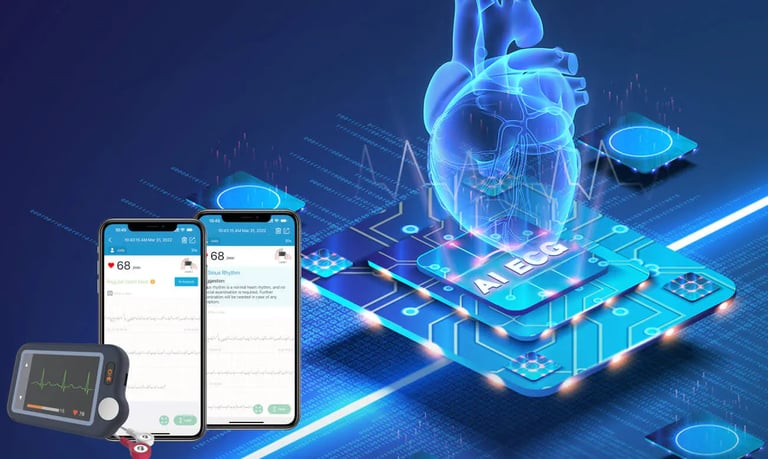EchoNext: AI‑Enhanced ECG
INNOVATION


Researchers at Columbia University created EchoNext, a state-of-the-art AI tool that can analyze normal ECGs and identify structural heart diseases. Its remarkable 77% accuracy greatly surpasses the roughly 64% accuracy of cardiologists' traditional interpretation.
Artificial intelligence (AI) developments are changing the medical field, particularly in the early identification and diagnosis of serious illnesses. One such innovation is EchoNext, a cutting-edge artificial intelligence tool created by Columbia University researchers that can accurately diagnose structural heart diseases and interpret standard electrocardiograms (ECGs).
ECGs have long been used extensively to track the electrical activity of the heart. However, more sophisticated and costly imaging methods are usually needed to detect structural heart problems like valve defects or cardiomyopathies. This is altered by EchoNext, which makes it possible for routine ECGs to serve as an effective screening tool that can detect cardiac anomalies that previously required MRIs or echocardiograms.
Artificial intelligence is used by EchoNext to identify minute patterns that might be invisible to the naked eye. Its accuracy rate in clinical trials was 77%, higher than the average of 64% for trained cardiologists. Most significantly, the AI system has already assisted in the discovery of more than 3,400 heart disease cases that were previously undetected. This lowers the chance of serious complications and enables prompt medical intervention, which may save lives through early treatment.
EchoNext's affordability and scalability contribute to its wider impact. Because ECG machines are already widely used in hospitals and clinics, incorporating AI-based analysis can enhance healthcare equity by bringing cutting-edge cardiac diagnostics to underprivileged areas. By reducing the need for expensive imaging tests unless absolutely required, it also lessens the strain on healthcare systems.